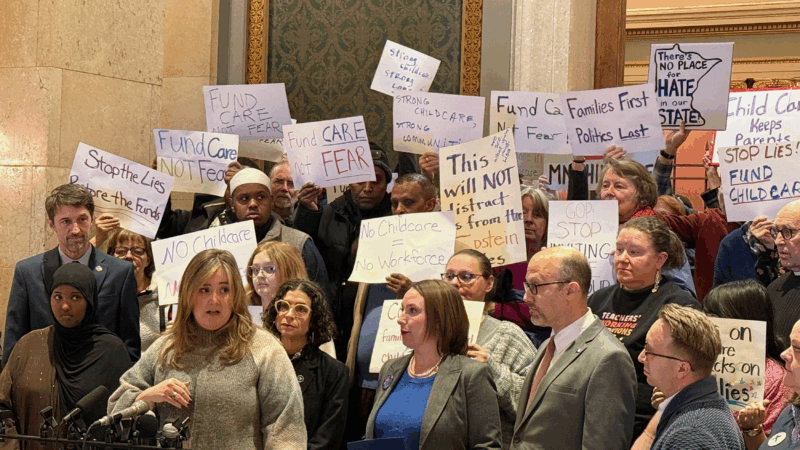B’ham Board Rejects State Cost-Cutting Plan
B’ham School Board Rejects State’s Cost-Cutting Plan
Vote Could Trigger State Takeover, but Norwood Elementary Supporters Are Happy
BIRMINGHAM, Ala. — In a 5-4 vote along increasingly familiar lines, the Birmingham Board of Education on Tuesday rejected a
cost-cutting plan proposed last week by the state team investigating the local board.
“We never had a chance as a board to sit down and go over it completely,” said Virginia Volker, who
voted with the majority to reject the plan. “Give us some more time and let us keep working at this. It’s
important that we protect the rights of our employees.”
She suggested pay cuts rather than eliminations, and creation of a task force to further study the plan.
Tyrone Belcher, Alana Edwards, Emanuel Ford and Edward Maddox also voted against it. Brian Giattina,
W. J. Maye, April Williams and Phyllis Wyne voted for it.
The plan would have cut roughly $12 million in spending in the first year, mainly by eliminating
administrative positions in the central office.
The early evening vote came after a public hearing at which many citizens spoke against the state’s plan,
its provision to close Norwood Elementary School in particular. Parents and Norwood area residents said
the school is truly a close-knit neighborhood school, and that they were unhappy about the prospects of
their students being transferred to Hudson K-8, which was built on contaminated soil and is in an area that the Environmental Protection Agency is still studying.
Before the vote against the cost-cutting plan, Birmingham Superintendent Craig Witherspoon and the Board had actually
agreed to keep Norwood open at least until results of the EPA monitoring come in.
During the public comment period, firebrand political and community activist Frank Matthews referred to state
Superintendent Tommy Bice as “Tommy Machine-Gun Bice” and argued that the state itself had forbidden
the local board to vote on any non-routine matters, and that a cost-cutting plan of this magnitude would
have to be considered non-routine. Matthews then proceeded to tear up a copy of the state’s 24-page
proposal and deposit it on the desk in front of the highest-ranking state education official in attendance,
Deputy Superintendent Craig Pouncey, who is also the state system’s chief financial officer. Pouncey sat
still and completely expressionless during and after the incident.
The state team’s plan would have cut 180 positions, mainly from the central office. Birmingham has an
administrator for roughly every 20 students, while neighboring Shelby County, for one example, has an
administrator for every 125 students.
State law requires school systems to maintain one month’s operating expenses in reserve. Birmingham
has roughly $2 million in that fund when it should be $17 million.
After the vote, Pouncey said he was disappointed by the outcome, and that it had impeded principals’
ability to begin putting their staffs together for next year. He said he’d be reporting back to
Superintendent Bice, and that a state takeover was “definitely an option.” He thought a decision would
be coming “sooner than later.” The state board, which has final authority on the question of a state
takeover, meets next Thursday, June 14.
Washington National Opera leaves Kennedy Center, joining slew of artist exits
The WNO is just the latest to say they will no longer perform at the Kennedy Center since Trump took over last year.
Ukrainian drones set fire to Russian oil depot after Moscow launches new hypersonic missile
The strike comes a day after Russia bombarded Ukraine with hundreds of drones and dozens of missiles, including a powerful new hypersonic missile that hit western Ukraine.
Opinion: Remembering Renee Good
Renee Good won a national prize six years ago for her poem "On Learning to Dissect Fetal Pigs," which muses on science and faith. Good was shot to death by an ICE agent this week in Minneapolis.
PHOTOS: Laundry is a chore but there’s a beauty and serenity in the way it hangs out
A new photo series from Filipino photographer Macy Castañeda Lee offers a visually striking view of the mundane task of doing laundry and the role it plays in a rural economy.
2026 looks ominous for media, from Hollywood to journalism
Critic at large Eric Deggans says that in 2026, audiences have more power than they realize to determine the future of news and entertainment.
Influencer, White House welfare fraud claims are distorted, but the system has risks
Federal officials are targeting Democratic-led states over alleged safety-net fraud. Critics worry a drumbeat of unfounded accusations could undermine public trust.






